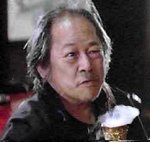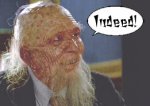D&D has a spirit that pervades all of D&D. Greyhawk is D&D; Forgotten Realms is D&D; even Dark Sun and Eberron are still D&D. You can make a homebrew world that goes out of its way to not be D&D but I just don't understand why you would bother. There are much better options, if you are uninterested in the spirit of the game.
I don't understand what you mean by the "spirit of the game" but it sounds like it's pretty much the antithesis of what I understand to be the spirit of the game. To whit, and I'm paraphrasing from pretty much every edition of D&D ever published: "Here's a bunch of stuff that we thought was pretty cool and you may like too. Use this stuff as best suits you and your group. Feel free to change whatever you need to." The "Spirit of D&D" isn't at all about having enough of the proper elements all lined up in their proper context so that it "feels" sufficiently like D&D, and if you don't have them, then you should play some other game. That's exactly how countless pointless fantasy heartbreakers have been designed. In spite of my dissatisfaction with a great many D&Disms, I'm not on the lookout for another game to replace D&D, I'm perfectly fine modifying D&D to suit my needs, and I'm perfectly comfortable knowing that that was the design intent of D&D from the get-go. (Of course, I also don't really care what the design intent is, since none of the designers is in my game at home.) Late in the 3.5 era, I ran a game in which I disallowed all of the core player races except human, replaced them with a bunch of others (goblin, hobgoblin, orc, shifter, etc.) and disallowed any class that had any kind of spell-progression at all, replacing all magic--divine and arcane both--with psionics. The players didn't once see a single dungeon, or a single dragon. As far as they know, neither exist anywhere whatsoever in the setting. We had crazy house-rules; a gun that was basically the Colt from Supernatural. Expanded use of action points. At one point, I even temporarily had a rule where if a character could quote 80s pop song lyrics in character in a way that didn't seem too forced and fit the action going on at the time, then they could get temporary benefits. Was that not D&D? Sure it was.
I admit that there is some kind of Platonic Ideal of what a game would look like, perfectly tailored to my tastes and preferences. There's probably also a Platonic Ideal of a gaming group that is perfectly in synch with my tastes and preferences, and to us, that Holy Grail Platonic Ideal game would be perfect. But in the real world, we play D&D more often than not. It's not some thing that has a "spirit"--it's a tool with which we have lots of fun. Often by using it in ways that the designers may not at all have intended that we take those specific elements.
In that sense, the 3e
Manual of the Planes and even moreso the 3e
Unearthed Arcana were the books that best encapsulated the spirit of D&D; because they not only gave us tons of examples of how to
change the game, even fundamentally, but they also explicitly condoned such an approach, for those amongst gamerdom who needed an official nod before they felt comfortable doing so.
I really do think D&D occupies a unique niche in this regard. Greyhawk and Nerath and Eberron and Planescape /impact/ D&D as a whole in a way that all the dozens of settings for FATE and Savage Worlds simply do not impact their core system. And I think this is a /strength/.
I'd say rather that D&D has always borrowed, stolen and regurgitated material from
any source. Most recently, it borrows, steals and regurgitates from itself more often than not. This isn't a bad idea. Ryan Dancey once proposed that one purpose of the OGL was to allow third party designers to be innovative in ways that the official ones might not be, and that ideally, D&D itself would therefore evolve constantly towards perfection, incorporating the best rules over time. This didn't actually happen, as it turned out, the OGL either produced derivative works, or works that specifically departed from D&D too much to really be reincorporated.
But from a setting perspective, this
has happened, at least from a certain point of view. Halflings are no longer hobbits, they're now basically all kender. The Planes have essentially
become Planescape. And more. I don't know for sure if it's a strength, or just a thing. Certainly a great number of gamers seem to like to see familiar elements rather than new ones. But the
right new ones really take off. I don't think Gary Gygax would have anticipated the cult following of the tiefling race, for example. But there it is.
On the other hand, this notion that we have to play D&D with enough of the proper elements in the proper context, and respecting the spirit of the game... that's not the spirit of the game. That sounds more like "purge the heretic" to me.





